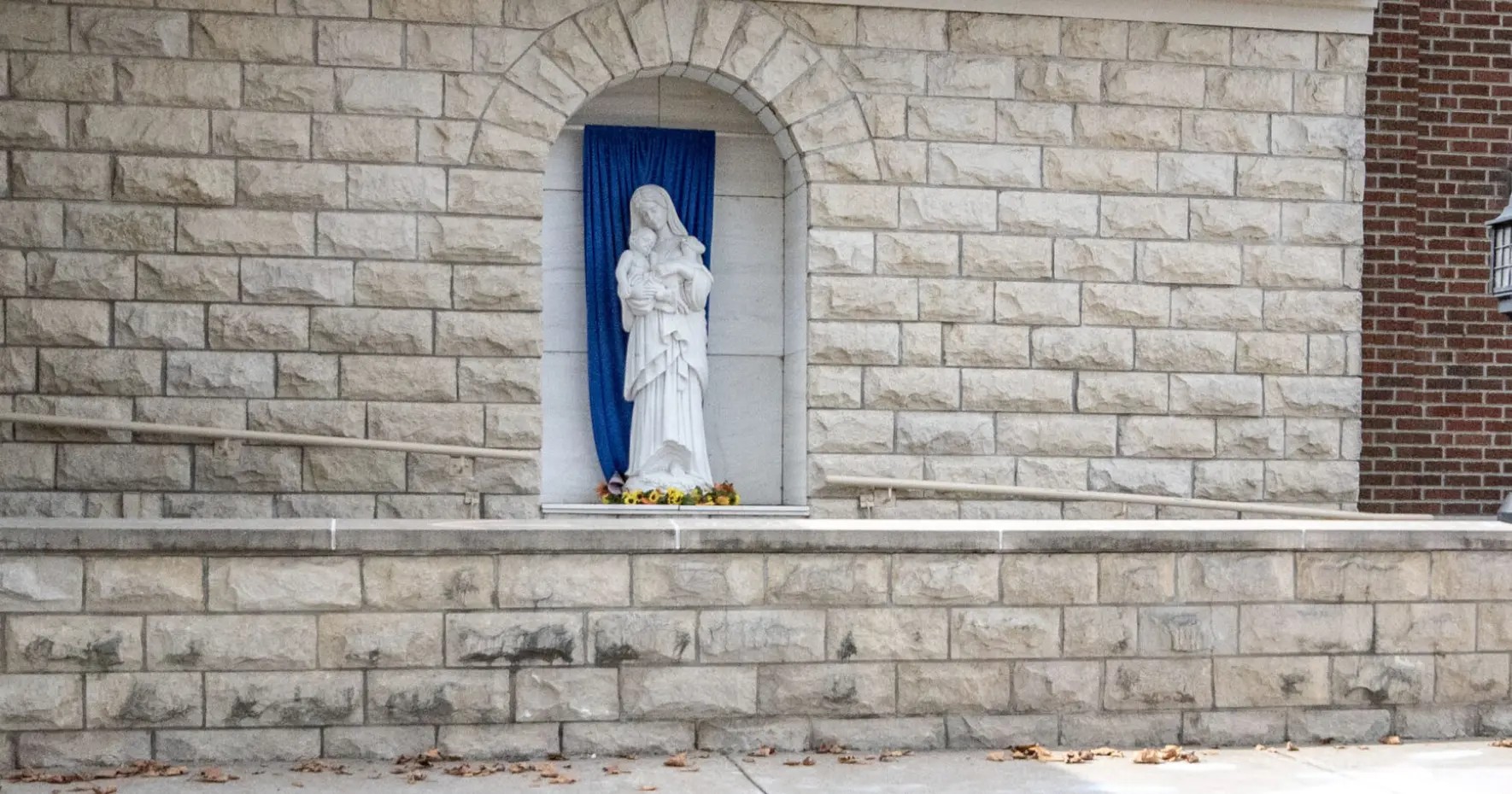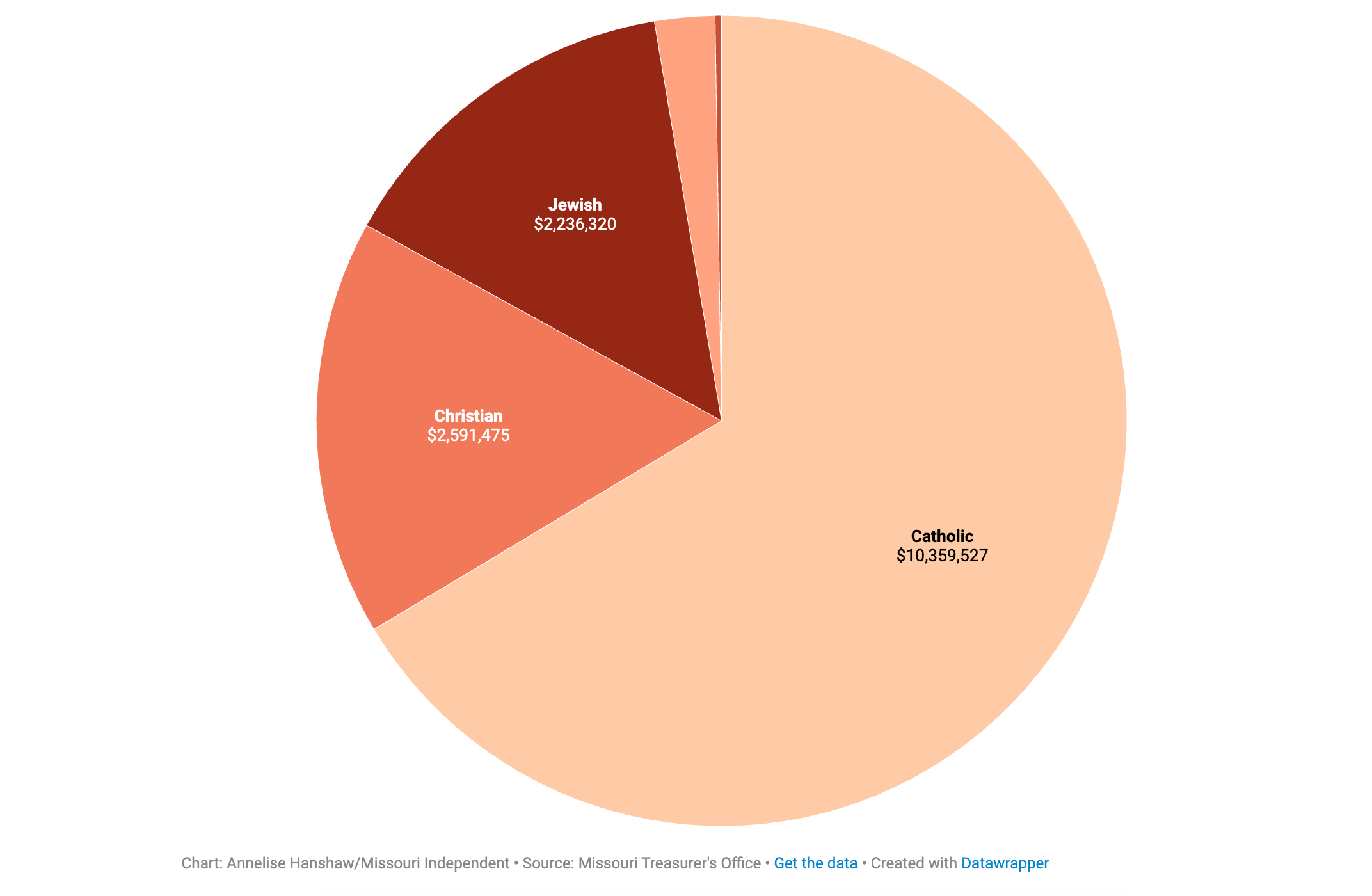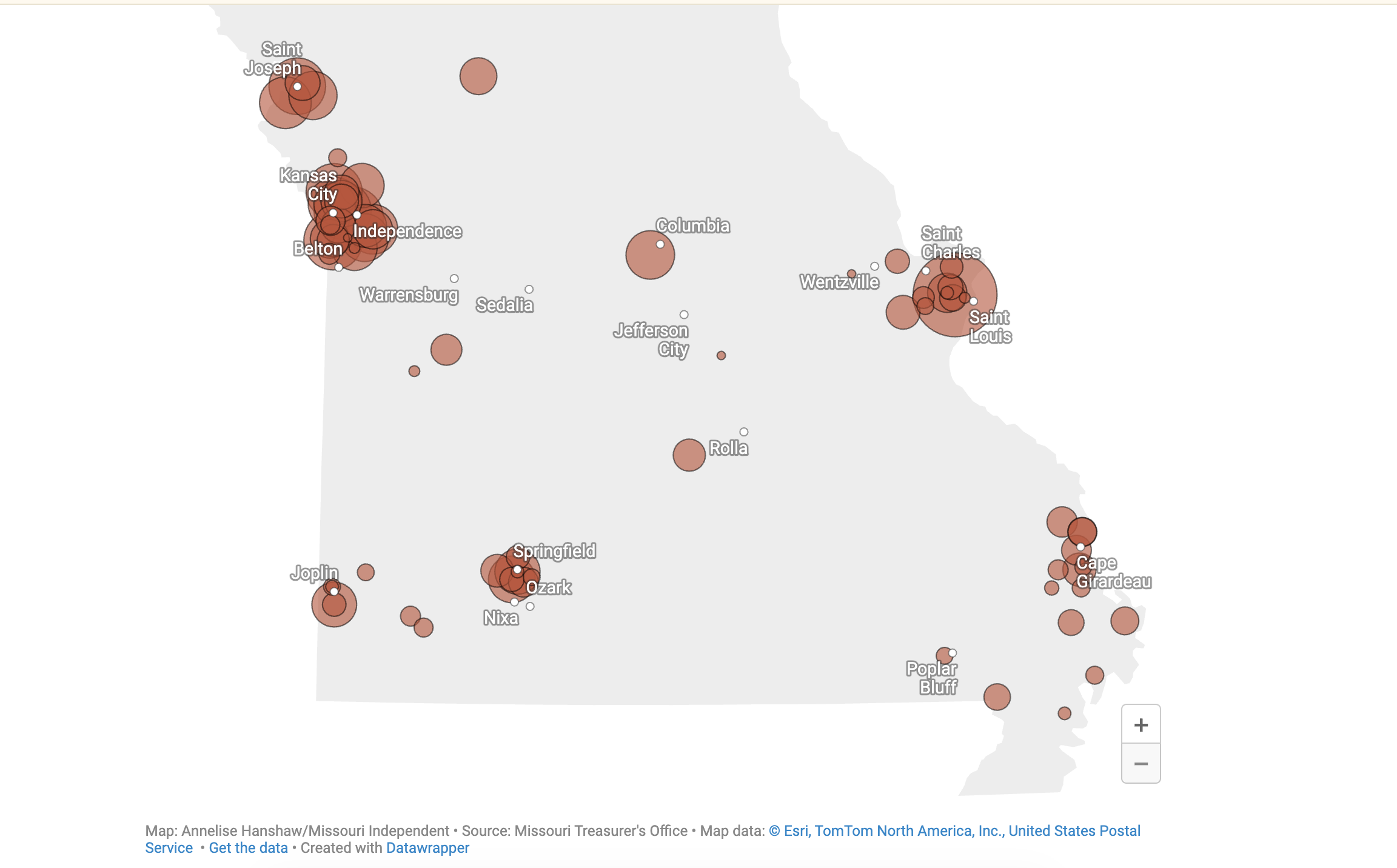
In the first month of direct state aid for Missouri’s K-12 scholarship program, 98% of funds went to religious institutions
By: Annelise Hanshaw
Missouri Independent
State funding of private-school vouchers is primarily being used for students attending religious institutions, with nearly 98% of funding going toward Catholic, Christian, Jewish and Islamic schools.
This year, state lawmakers passed a budget that included a request from Gov. Mike Kehoe to supply the state-run K-12 scholarship program, MOScholars, with $50 million of general revenue. Previously, the impact to the state’s bottom line was indirect, with 100% tax-deductible donations fueling the program.
Donations are still part of MOScholars’ funding, but the state appropriation has more than doubled the number of scholarships available.
During the 2024-25 school year, MOScholars awarded $15.2 million in scholarships.
In August alone, the State Treasurer’s Office received invoices for scholarships totaling $15.6 million, according to documents obtained by The Independent under Missouri’s open records laws.
The invoice process is unique to the direct state funding of the program. The nonprofits that administer scholarships, called educational assistance organizations, were the sole keepers of scholarship funds. But now, the State Treasurer’s Office holds scholarship money derived from general revenue in an account previously only used for program marketing and administration.
The invoices contained data on which schools MOScholars students are attending and the scholarship amount.
Of the 2,329 scholarships awarded in August, only 59 went to students in nonreligious schools.

This number did not surprise Democratic lawmakers, who for years have warned that state revenue was going to be siphoned into religious schools.
“We are simply subsidizing, with tax dollars, parents who would already choose to send their kids to a private school,” state Sen. Maggie Nurrenbern, a Kansas City Democrat, told The Independent. “And now we are using public dollars to pay for schools that are not transparent whatsoever in choosing who to educate and who not.”
Some schools have been criticized for admission requirements that push a moral standard.
Christian Fellowship School in Columbia, which received scholarships for 63 MOScholars students in August, requires “at least one parent of enrolled students professes faith in Christ and agrees with the admission policies and the philosophy and doctrinal statements of the school,” according to its handbook.
These statements include disapproval of homosexuality.
“The school reserves the right, within its sole discretion, to refuse admission of an applicant or to discontinue enrollment of a student,” the handbook continues.
With around 430 K-12 students enrolled at Christian Fellowship School, according to National Center for Educational Statistics survey data, MOScholars makes up a sizable portion of its funding. But it is not the only school with a large number of scholarship recipients.
Torah Prep School in St. Louis had 229 K-12 students during the 2023-24 school year. And in August, 197 MOScholars students received funding to attend the school. Torah Prep did not respond to a request for comment.
The high number of students attending religious schools with MOScholars funding is somewhat incidental, somewhat by design.
The MOScholars program allows its six educational assistance organizations to choose what scholarships they are willing to support.
Religious organizations stepped into the role to help connect congregants with affiliated schools. Only two of the six educational assistance organizations partner with schools unaffiliated with religion.
The Catholic dioceses of Kansas City-St. Joseph and Springfield-Cape Girardeau run the educational assistance organization Bright Futures Fund, which administered nearly half of the scholarships awarded in August.
The educational assistance organization Agudath Israel of Missouri focuses on Jewish education, partnering with four Jewish day schools.
The organization’s director Hillel Anton told The Independent that students are attracted to the program for more than just religious reasons.
“(Parents’) first and foremost concern is where their child is going to be able to be in the best learning environment,” Anton said. “And you may have a faith-based school that is fantastic and is able to provide that.”
State-funded scholarships administered in August, by location
This data was compiled from MOScholars invoices issued in August — the first month that scholarships were administered through a state appropriation. During August, over 2000 students received funding through the program.

The demand for the program has long exceeded funding availability. Going into August, organizations had waitlists of students eligible for a scholarship but without funding secured.
Agudath Israel of Missouri couldn’t guarantee scholarships for all of the returning students, Anton said, until the state funding was official.
“Because a lot of the funding is done towards the end of the year… we had everyone on a wait list,” he said. “Because we didn’t know necessarily how much funding we were going to have, we weren’t awarding anyone (the funding).”
Because the program was previously powered by 100% tax-deductible donations, the majority of funds poured in around December. But families need the money months sooner, with tuition due at the start of the school year.
Some educational assistance organizations prefunded scholarships, dipping into their savings to front expenses in the fall. Others had schools that would accept students and wait for payment.
The funding from the state, though, has resolved the backlog and allowed organizations to give scholarships to everyone on their wait list.
“Everyone who qualified for a scholarship this year received one,” Ashlie Hand, Bright Futures Fund’s director of communications, told The Independent.
Bright Futures Fund nearly doubled the number of students it serves, from 1,050 to 1,909.
Agudath Israel of Missouri is growing, too. The new funding helped the organization expand from 175 scholarships last year to 277 this year.
Some expect the state funding to continue next year to support this year’s windfall of scholarships. State Treasurer Vivek Malek told The Independent in May that if donations fall short, he will request state funds to support the new students through graduation.
The Independent’s Rudi Keller contributed to this report.
